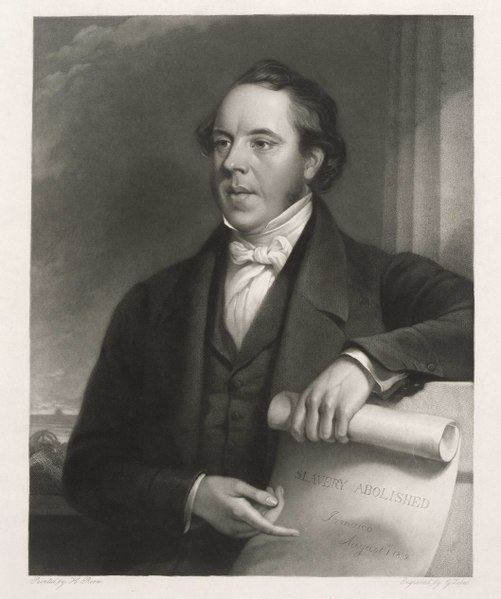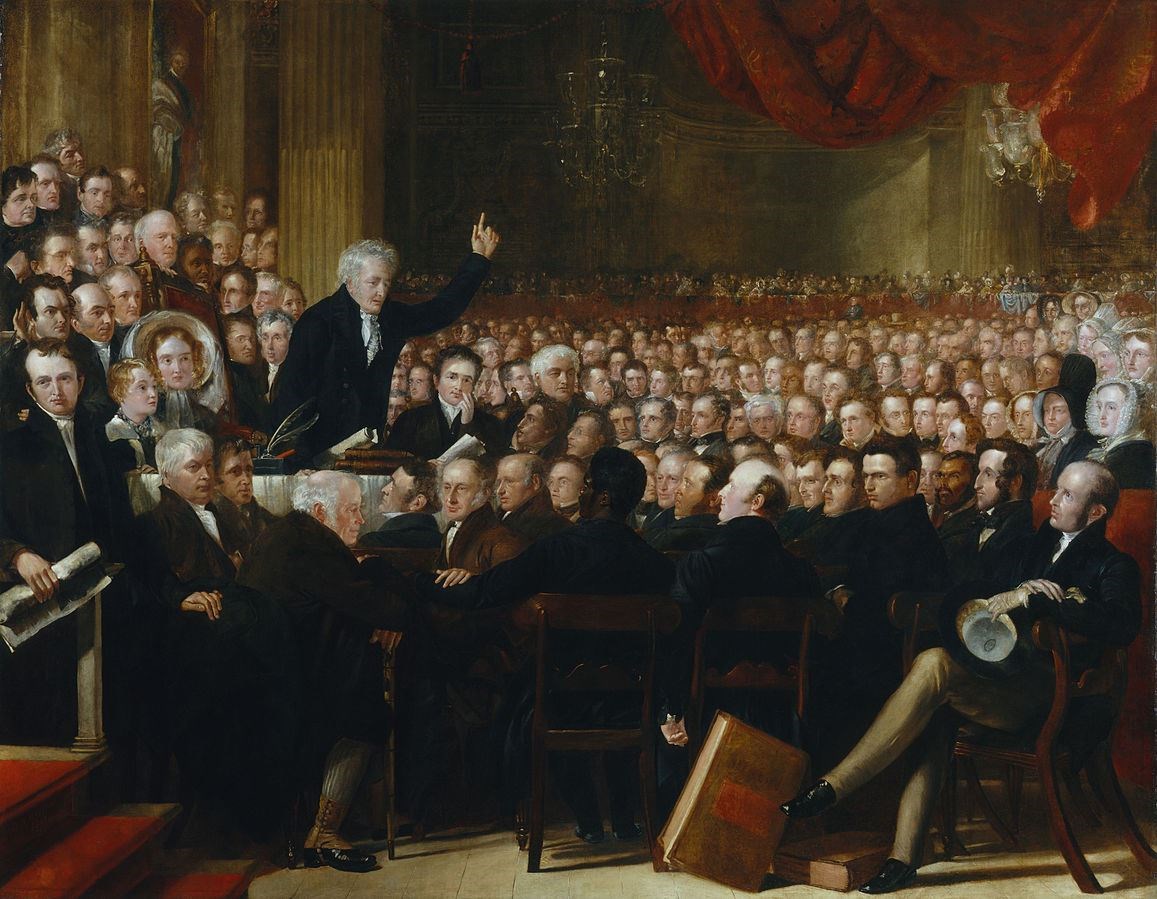 Thomas Clarkson in 1840By G. Lobel; after H. Room [Public domain], via Wikimedia CommonsThe next time you write an essay, consider that it could change your life!
Thomas Clarkson in 1840By G. Lobel; after H. Room [Public domain], via Wikimedia CommonsThe next time you write an essay, consider that it could change your life!
Thomas Clarkson was born in 1760, the son of an Anglican priest. Ordained a deacon, he would likely have become a priest also except for a life-changing Latin essay competition he entered while at St. John's College, Cambridge. The topic of the essay was, "Is it lawful to enslave the unconsenting?"
To answer the question, just like any other student, Clarkson researched the topic. But while he had set out expecting to write the essay for "literary honor," he found it a painful work because of the "gloomy facts": "It became now not so much a trial for academical reputation, as for the production of a work, which might be useful to injured Africa." He wrote his essay in three parts: (1) the History of Slavery (2) The African Commerce or Slave-Trade (3) The Slavery of the Africans in European Colonies. He refuted the arguments for the slave trade both on a logical and spiritual basis, and his essay won first prize.
But the story does not there. On the way home to London on horseback, he had a spiritual revelation. He found his mind so engrossed in the question of the essay, that he would get off his horse and walk around. He came to realize that if he believed what he said in his essay was true, he had to do something to end slavery: "On returning however to London, the subject of it almost wholly engrossed my thoughts. I became at times very seriously affected while upon the road. I stopped my horse occasionally, and dismounted and walked. I frequently tried to persuade myself in these intervals that the contents of my Essay could not be true. The more however I reflected upon them, or rather upon the authorities on which they were founded, the more I gave them credit. Coming in sight of Wades Mill in Hertfordshire, I sat down disconsolate on the turf by the roadside and held my horse. Here a thought came into my mind, that if the contents of the Essay were true, it was time some person should see these calamities to their end. Agitated in this manner I reached home."
He wondered what he as a young man of 24 could do, and found himself envying those with power and reputation. The one thing he realized he could do was to translate his essay into English, to raise public awareness on the issue. He met other abolitionists and went on to establish the Society of the Abolition of the Slave Trade. He traveled around England to spread the word and to gather evidence about the horrors of the slave trade. He helped Wilbur Wilberforce, the member of Parliament in charge of the abolition committee with evidence. Wilberforce made a famous speech in Parliament against the slave trade in 1789, showing the branding irons, handcuffs, and chains used to enslave people. However, it was a long fight. The slave merchants were powerful and public interest in the issue waxed and waned. Clarkson worked so hard on the issue that he had a physical collapse in 1794 and did not return to the movement until 1803.
 The Anti-Slavery Convention, 1840Benjamin Haydon [Public domain], via Wikimedia CommonsClarkson and his fellow anti-abolitionists saw passage of the Abolition of the Slave Trade Act in 1807, two decades after his revelation. The Act fined British sea captains for carrying slaves. It did not end the slave trade all at once, but paved the way. Clarkson wrote in his book, History of the Rise, Progress and Accomplishment of the Abolition of the African Slave Trade, published in 1808: "Thus ended one of the most glorious contests, after a continuance for twenty years, of any ever carried on in any age or country. A contest, not of brutal violence, but of reason. A contest between those, who felt deeply for the happiness and the honour of their fellow-creatures, and those, who, through vicious custom and the impulse of avarice, had trampled under-foot the sacred rights of their nature, and had even attempted to efface all title to the divine image from their minds."
The Anti-Slavery Convention, 1840Benjamin Haydon [Public domain], via Wikimedia CommonsClarkson and his fellow anti-abolitionists saw passage of the Abolition of the Slave Trade Act in 1807, two decades after his revelation. The Act fined British sea captains for carrying slaves. It did not end the slave trade all at once, but paved the way. Clarkson wrote in his book, History of the Rise, Progress and Accomplishment of the Abolition of the African Slave Trade, published in 1808: "Thus ended one of the most glorious contests, after a continuance for twenty years, of any ever carried on in any age or country. A contest, not of brutal violence, but of reason. A contest between those, who felt deeply for the happiness and the honour of their fellow-creatures, and those, who, through vicious custom and the impulse of avarice, had trampled under-foot the sacred rights of their nature, and had even attempted to efface all title to the divine image from their minds."
Clarkson continued to write pamphlets to end slavery. In 1833, England passed the Slavery Abolition Act, which granted all slaves in the British Empire their freedom. Clarkson passed away in 1846.
Page created on 8/20/2018 8:33:57 PM
Last edited 3/24/2021 6:15:06 AM
